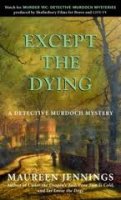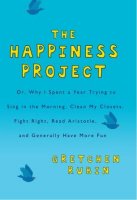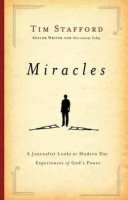It's been the required eight weeks since I last gave blood, so I made an appointment to do so. It's pretty convenient now; you can do it online, and there's a Big Red Bus scheduled to be nearby at frequent intervals.
I have been tempted to ask if they handle the blood better than other aspects of the donation process. Tempted, but I haven't given in, there being no point in unnecessarily angering the person who's about to plunge a needle into my arm. But I do wonder sometimes.
My appointment was for Friday, at our local Best Buy parking lot. When I received my appointment confirmation, I was confused, because the address they gave me was not the Best Buy address. Nevertheless, I was assured that the bus would be at Best Buy. And, indeed, there was a big red vehicle in sight as I approached, but it proved on closer inspection to be a Budweiser truck, which deals in a different sort of liquid altogether.
I decided to check out the actual address I had been given, but the bus wasn't there, either. "Weren't you informed?" asked the friendly person on the other end of the phone when I called the blood center. "The drive was changed to Sunday." No, I had not been informed, unless you count the e-mail I had received on Friday, reminding me of my appointment. It was simply a form notification, which I hardly looked at, as Google Calendar had been there, done that for me already. My mistake, I suppose, because although nothing was said about a date change, the e-mail did have Sunday as my appointment date.
No problem, though, just about 20 minutes of time wasted. I returned today, and there, where it was supposed to be, was the blood bus. It was busy but not crowded, and all went almost smoothly.
I say almost, because as I said last time, they wanted details for all of my trips overseas. It shouldn't have been a big deal, since I was prepared this time with the dates of my Swiss trips. (I'll admit to being a little fuzzy on the number and extent of side trips to Germany, France, and Italy, which are always a few hours here, a few hours there.) So I was surprised when there seemed to be some concern, and the lady came back to me after consulting the master book, asking, "What cities, what regions did you visit?" "All over the map," I replied, "but mostly in Basel and the Luzern area." Back to the book she went. Finally, she returned to me, with the page in question: "We're concerned about malaria," she said. "You see this region over near Mozambique...." The light dawned. "Switzerland," I sighed. "Switzerland. Not Swaziland."
After that, actually losing a pint of blood was a piece of cake.
Permalink | Read 2418 times | Comments (0)
Category Everyday Life: [first] [previous] [next] [newest]
 Except the Dying by Maureen Jennings (St. Martin's Press, 1997)
Except the Dying by Maureen Jennings (St. Martin's Press, 1997)
I had been looking forward to reading the first of Jennings' detective stories, the inspiration for the Murdoch Mysteries television series; as I stated in my review of the shows, I'd hoped the book would be less anachronistic than the TV version. In that I got my wish: Except the Dying presents a much more believable view of the seamy underside of late 19th century Toronto. Much to my surprise, however, I plan to continue to enjoy the shows without reading any more of Jennings' other stories.
The movies are perhaps the greater more pernicious lie: the prostitutes are clean and well-mannered; the abortionists are thoughtful, civilized gentlemen; the streets are free of manure and of emaciated children; not a spittoon nor a chamber pot is to be seen. Which is worse, to make the darkness light or the light darkness? The book's lurid detail of evil and filth overwhelms the story, and stains the small glimmers of goodness. How I long for the more restrained writers of the past, who could describe a cesspool without making the reader feel as if he had fallen into it.
Except the Dying is not a terrible book. Jennings writes well, and with more historical accuracy than the TV writers. But as for me, I have had enough. There are more uplifting books waiting to be read.
Whenever I see a title that looks as if it comes from something I feel I should know, I renew my gratitude for Google. (Google the search engine, that is, even though I have mixed feelings about Google the large company.) Except the Dying is from a poem by Emily Dickenson:
The last night that she lived,
It was a common night,
Except the dying; this to us
Made nature different.
 The Happiness Project: Or, Why I Spent a Year Trying to Sing in the Morning, Clean My Closets, Fight Right, Read Aristotle, and Generally Have More Fun by Gretchen Rubin (Harper Collins, 2009)
The Happiness Project: Or, Why I Spent a Year Trying to Sing in the Morning, Clean My Closets, Fight Right, Read Aristotle, and Generally Have More Fun by Gretchen Rubin (Harper Collins, 2009)
Is it selfish to think about our own happiness?
Had this book not been recommended by someone I respect, I'd have given it a wide berth out of just such a concern. And that would have been a sad mistake. Certainly we are now awash in tragedies caused by people seeking their own happiness at others' expense, but as Rubin adroitly demonstrates,
One of the best ways to make yourself happy is to make other people happy;
One of the best ways to make other people happy is to be happy yourself.
No one who regularly reads my reviews will be surprised to hear that I have my points of disagreement with Gretchen Rubin, but they are surprisingly few. Although she bolsters her conclusions with quotes from her extensive research into happiness theory, this book is primarily a highly personal account of the year she spent in the laboratory of her own life. Rubin is a wealthy woman, a best-selling author, and a lawyer who once worked for Supreme Court Justice Sandra Day O'Connor; she lives in New York City, employs a nanny, and likes to collect objects that need to be dusted. Despite the obvious contrasts with my own life, there's much in her discoveries that inspires me.
I highly recommend The Happiness Project—especially for those who have been trained to answer "yes" to the question above. There's a sequel, just released, called Happier at Home, but I'm 10th in line at our library so won't be reviewing that one for a while. However, as with many contemporary books, there's a lot to explore at the Happiness Project website.
 Miracles: A Journalist Looks at Modern-Day Experiences of God's Power by Tim Stafford (Bethany House, 2012)
Miracles: A Journalist Looks at Modern-Day Experiences of God's Power by Tim Stafford (Bethany House, 2012)
Do you believe in miracles? If you believe they've happened in the past (manna in the wilderness, Jesus's resurrection, the healings of Paul), do you think they died out early in the history of the church, or are there miracles today? Why do we talk about "belief" with respect to miracles? Are miracles matters of faith only or can they be tested and proven or disproven? Just what is a miracle, anyway?
I believe that Copenhagen exists. I've never been there, but Porter has. I've seen pictures of Copenhagen, and read about it, and can easily access all sorts of documentation as to its existence. What's more, even if I doubt all these sources, I can hop a plane and end up in a city where the people speak Danish and claim to be living in Copenhagen. (Or not; who knows? I haven't tried it.)
Tim Stafford would like to be able to put the idea of modern-day miracles to the Copenhagen test. Actually, he's been to Copenhagen, as it were, having observed what he considers to be a bona fide miracle of healing in a (formerly) wheelchair-bound friend. But there's a lot of chaff—wishful thinking, outright fraud, and honest prayers that go unanswered—in the miracle wheat field. Many people board the plane and end up in Oslo. Or in the Pacific Ocean.
Stafford, a journalist by profession, examines reported miracles from ancient history to the present, from his own backyard to Mozambique. His investigations are open-minded, and his conclusions open-ended. The evidence for modern-day miracles he finds convincing, but not overwhelming. Moreover, he comes to the counterintuitive conclusion that it is in the very nature of miracles not to be overwhelming.
Here are my takeaways from Miracles:
- Any consideration of the miraculous will be hindered by fuzzy definitions. We confuse the issue by calling a lovely sunset or the birth of a baby a "miracle," when they are in fact marvellous, awesome, but ordinary works of God.
- Most of us, if we don't think about it too much, tend to divide events into the natural (the way the world works, maybe set in motion by God but moving along on its own, explainable by physical laws, whether or not we have discovered them) and the supernatural (direct intervention by God/gods/angels/spirits, not measurable or explainable—miracles). For a Christian, however, that's a wrong way of thinking: the natural, too, is God's present, ongoing work. All healing is God's healing, all life is his, the provision of bread through planted wheat no less from God than manna from heaven.
- Miracles, by Stafford's definition, happen when God does something unusual, or in an unusual way. Dead people do not normally come to life again. Wine-making always begins with water, but in the miraculous version the long process using grape vines and fermentation is side-stepped.
- God acts physically in our material world. That an event can be "explained" by processes we understand, or hope to understand in the future, does not ipso facto mean it is not miraculous. It is the unusual, "signs and wonders" aspect that signals a miracle.
- One often-overlooked property of miracles is that they are rare. If the Bible seems replete with miracles, it's because it covers a long time span. They are also unevenly distributed, with some peak times when miracles are more frequent being scattered amongst long stretches of no recorded miraculous activity.
- God uses miracles to catch our attention. They are "signs and wonders." But they never point to themselves, always to Christ and the Kingdom of God. A focus on miracles for their own sake is a pretty good sign of a wrong attitude.
- Also suspect is the suggestion that a specific formula, method, person, or icon can somehow force God's hand to work miracles. Not only is the occurrence of a miracle unpredictable, but God seems determined to change up the means: strike the rock for water, speak to the rock for water; heal by touch, heal by spoken word alone, heal using clay and spittle, heal by washing; provide food by multiplying flour and oil, provide food by multiplying the bread itself; etc.
- Both historically and in the present, most genuine miracles appear purposely directed at small groups of eye witnesses. In fact, the idea of doing something miraculous that could be directly attested to by large numbers of people seems to be a temptation Jesus specifically rejected (Matthew 4:5-7).
- Despite several occasions at which Jesus connected healing with faith, the Bible provides plenty of evidence that true faith is neither proved by miracles nor disproved by their absence.
The search for miracles, then, is less like taking a flight to Copenhagen, and more like quantum physics: real, astonishing, unpredictable, complex, and not for the faint of heart. Stafford's Miracles is a good introductory course.
Have you seen this ad? In anything other than very small doses, this technology could get 'way out of hand: can you imagine what downtown Tokyo might do with it? But for entertainment value, not to mention the gee-whiz factor, it's hard to beat. I'm also continually amazed by the hubris of companies that think there's no need to specify in their ads just what their product is, or what it does.
Permalink | Read 2274 times | Comments (2)
Category Just for Fun: [first] [previous] [next] [newest]
My backblog has once again achieved unmanageable proportions, so it's time to bring back—ta da!—Casting the Net, in which I collect related—or unrelated—snippets of items that have caught my attention. Today's post was inspired by a series of videos on math education in the U. S. sent to me by my sister-in-law. (Um, back in March 2011; I told you I'm behind.)
First, Math Education: An Inconvenient Truth, by M. J. McDermott, who is neither a teacher nor a mathematician, but with a degree in atmospheric sciences it's safe to say she has a pretty good grip on the kind of math elementary and secondary school students should be learning. And she doesn't like what she sees being taught in schools today, in particular the approaches of Investigations in Number, Data, and Space (aka TERC) and Everyday Mathematics. (duration 15:27)
It's not easy to offer a prayer in such a diverse, public setting, but Jena Lee Nardella, founder and executive director of of Blood:Water Mission did an awesome job with the benediction yesterday at the Democratic National Convention.
That's it, right there. That's what we need. I'd vote for her for president, except that her work in Africa is too important.
Thanks to Carolyn Custis James for posting this on Facebook, because I sure am not watching this convention any more than I did the other one.
 Nothing is so likely to lure me to the television set as a good, short mystery. Fortunately or unfortunately, Netflix has a goodly assortment of the same. Lately, our queue has been filled with an offering from Canadian TV, Murdoch Mysteries. The still-running show is based on the books of Maureen Jennings; I've placed a hold at our library for the first of her tales of Detective William Murdoch, hoping to find them an improvement over the filmed version.
Nothing is so likely to lure me to the television set as a good, short mystery. Fortunately or unfortunately, Netflix has a goodly assortment of the same. Lately, our queue has been filled with an offering from Canadian TV, Murdoch Mysteries. The still-running show is based on the books of Maureen Jennings; I've placed a hold at our library for the first of her tales of Detective William Murdoch, hoping to find them an improvement over the filmed version.
Not that the shows aren't enjoyable—if they weren't, we wouldn't be into the third season now. The premise is interesting: Murdoch is a police detective in 1890's Toronto who solves his cases using scientific methods and equipment that are unknown, little used, or even not quite invented yet. Think CSI: Victorian Toronto.
What causes the fingernails-on-the-blackboard feeling is that, while slightly advancing scientific knowledge for the time period, the show greatly advances the main characters' social attitudes. Be it feminism, abortion, homosexuality, birth control, dating behavior, the church, business practices, or government agents, the setting may be the late 19th century, but the attitudes of the main characters are pure 21st century Hollywood.
You can only push the audience's credulity so far. If you ask them to accept one unrealistic premise, the rest of your story should be believable. J. R. R. Tolkien peopled his created world with fantastic creatures—but they thought, spoke, and acted in familiar ways that we could understand. (That's one of the quarrels I have with the movies—I find them less believable than the books—but that's another post.) J. K. Rowling had no difficulty getting us to accept a world of magic because Hogwarts was otherwise (I assume) a typical British boarding school. (Where it wasn't, the discontinuity was glaring. I still haven't gotten over a British boy describing something as "the size of a baseball bat.")
I'll accept a Toronto police detective using x-ray photography, but I can't swallow a supposedly devout Victorian-era Catholic seriously pursuing a romantic relationship with a non-Catholic, and one with strident anti-Catholic attitudes at that. And I choke every time a character says to a victim's loved one, "I'm sorry for your loss." I don't know exactly when that expression became commonplace, but it was within my lifetime. We've learned to live with the frequent anachronisms, but they diminish the show's credibility.
My favorite character is Constable George Crabtree (played by Jonny Harris), supposedly naive and somewhat dim-witted, but often smarter, and certainly more likeable, than the rest.
The mysteries themselves are inconsistent: some so ridiculous we're certain they cut out important scenes to save time, some very clever with more unexpected twists than an Olympic gymnast.
But what I really like is the music, especially the theme song, and the opening credits. Composer Robert Carli has made the most creative use of percussion (think percussion toys and "bells" in all forms) and percussion-like instrumentation (e.g. pizzicato strings) that I can remember. There's also an artistic flair to the colors and the lettering of the credits that appeals to me. You can get a taste of it here. But only a taste, because for some reason the action of the video seems sped up, which takes away from its elegance.
Stone Soup today is worth highlighting.



